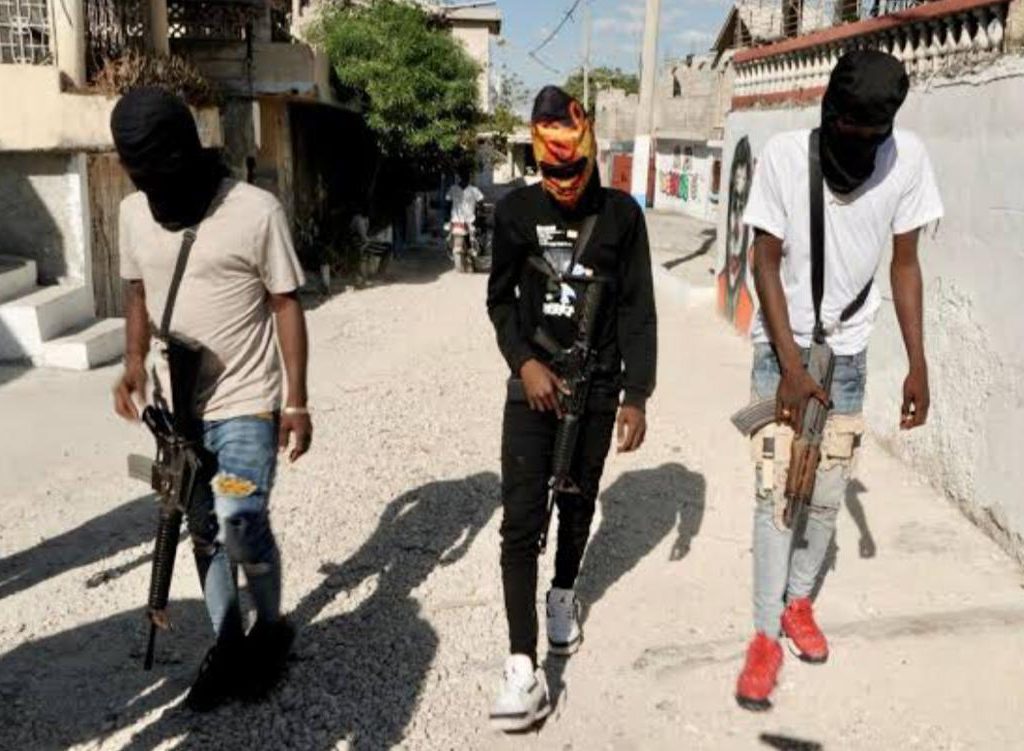
UN secretary general António Guterres says the situation in Haiti is “tragic,” acknowledging that it has been difficult mobilising the international community to rescue the country from the “absolutely appalling” gang violence.
“This has been a difficult exercise,” Mr Guterres said from Kingston, Jamaica. “It has been difficult mobilising the will of those that would have the best capacity to lead this operation. And it has been difficult to create, also, the political conditions to make it easier for different countries to accept to be part of this action.”
Mr Guterres arrived in Jamaica on Sunday and met with Prime Minister Andrew Holness on Monday.
The two discussed a range of issues, from the climate crisis in the Caribbean to the lack of low-interest borrowing for developing and vulnerable middle-income countries to the deteriorating situation in Haiti, where more than 600 people were killed last month across metropolitan Port-au-Prince in the conflict caused by armed groups.
“Haiti is in a tragic, tragic situation,” the secretary general said, personally addressing Haiti’s catastrophic descent into a spiral of violence for the first time in months.
Previous comments have come through a spokesperson, his representative in Haiti’s capital, Port-au-Prince, or his regular reports to the UN Security Council.
“You have dramatic humanitarian needs. You have a political system that is paralysed, and you have levels of violence by gangs that are absolutely appalling,” he said, adding that both the gang violence and the political paralysis needs addressing. “The number of people killed, the number of people unable to live their lives, the dramatic food insecurity problems are indeed something that needs a much stronger commitment by the international community.”
Mr Guterres’ visit came a day before foreign ministers of the 15-member Caribbean Community, known as CARICOM, are set to meet in Jamaica.
The meeting, chaired by Jamaica’s Minister of Foreign Affairs Kamina Johnson Smith, will broach several issues, including the region’s foreign policy, bilateral relations with the United States, Canada and the UN, and the situation in Haiti, the regional bloc said in a statement.
In October, as a gang federation seized control of the country’s main fuel terminal in the capital, Guterres called for “the immediate deployment of a multinational rapid action force” to assist the country’s beleaguered police force as it struggled to regain control from powerful gangs.
His appeal, part of a multi-pronged security plan, was later accompanied by a resolution by the U.S. and Mexico before the Security Council to create a non-UN multinational force.
By making it not a UN peacekeeping mission, per se, the U.S., which does not want to deploy its boots on the ground, was hoping the proposal would be more palatable to the Haitian public — and perhaps members of the international community who have been critical of previous UN interventions in Haiti.
Seven months later, however, neither request has gone anywhere, and the security situation has only worsened. Gangs now control at least 80 per cent of the capital and have expanded their reach to the Artibonite Valley, just north of the capital.
At least eight documented gang massacres this year have contributed to the deaths of at least 1,446 people in the first four months. With violence becoming more extreme, kidnappings have soared, and mob killings and lynchings are rising.
The UN says at least 164 suspected gang members were killed in April by the population taking matters into its own hands.
(NAN)


